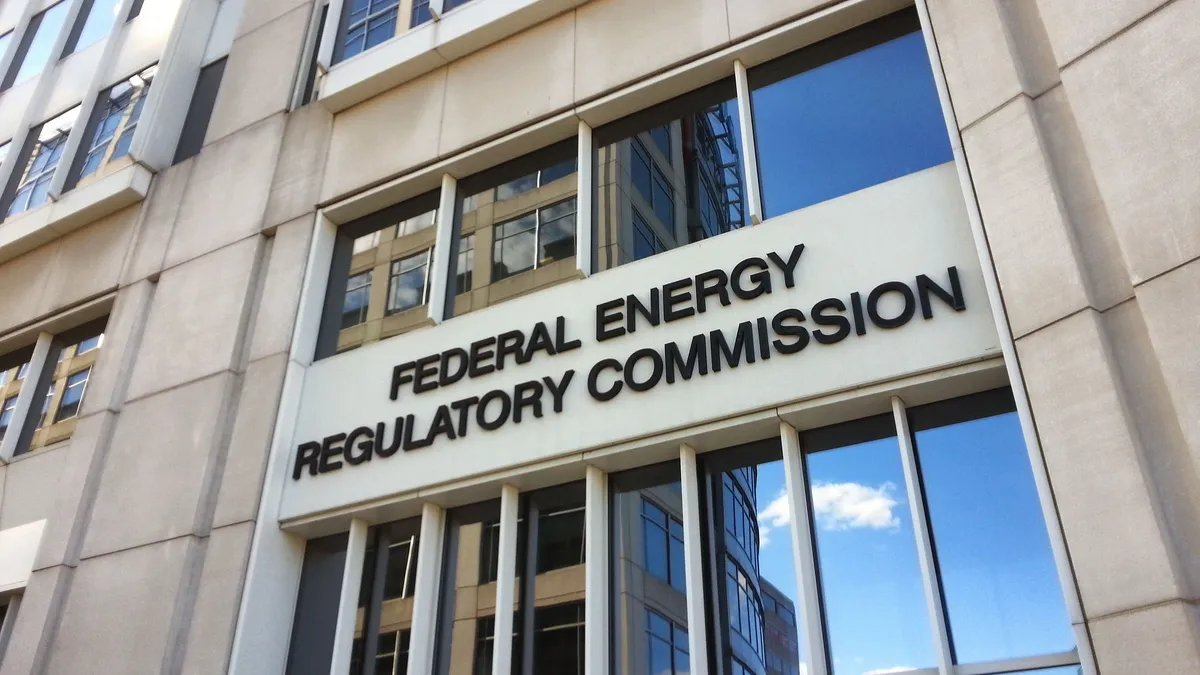Dive Brief:
- President Trump will nominate Robert Powelson, a member of the Pennsylvania Public Service Commission, and Neil Chatterjee, a longtime aide to Senate Majority Leader Mitch McConnell (R-KY) to seats on the Federal Energy Regulatory Commission.
- If confirmed by the Senate, Powelson and Chatterjee would join Acting Chairman Cheryl LaFleur and Commissioner Colette Honorable on the FERC board. Honorable plans to step down in June, and the agency must have at least three regulators to issue decisions.
- Energy groups have pressed Trump to restore the quorum at FERC. The commission has $50 billion in energy projects before it and is working through proposals to reform wholesale power market structures.
Dive Insight:
Reports of Chatterjee and Powelson's appointments have circulated for months, but with the White House caught up on healthcare and the budget, it remained unclear when the administration would turn to restoring quorum at FERC.
Power and gas interests have clamored for it; Bloomberg estimates about $50 billion in energy projects have seen delays due to FERC's inability to render major decisions. The commission lost quorum in January when former Chairman Norman Bay stepped down.
In the Pennsylvania regulator and Senate aide, Trump has two nominees supportive of greater state control over energy policy.
As an aide to McConnell, Chatterjee helped write energy and environmental policy in the Senate and coordinated challenges to the Clean Power Plan, President Obama's signature climate regulation.
Before joining the majority leader, Chatterjee was a lobbyist for the National Rural Electric Cooperative Association, a trade group for power co-ops that generally advocates for states' rights in energy policy.
Powelson has served on the Pennsylvania PUC since 2008 and last year was elected president of the National Association of Regulatory Utility Commissioners (NARUC), a national advocacy group of state regulators.
In a letter to the White House in January, Powelson called on the administration to prioritize power and gas infrastructure replacement, move forward with the Yucca Mountain nuclear waste repository and modernize the Public Utility Regulatory Policies Act of 1978, which guides significant renewable energy procurement.
The letter also asked the White House to remedy “recent federal agency decisions that have encroached on state authority,” particularly regulations that “bypass or undermine” state generation resource allocation choices.
The focus on state control could play into ongoing debates at FERC over state renewable energy mandates and nuclear subsidies. Earlier this month, FERC hosted a technical conference on integrating state energy policies into wholesale power markets, with a general consensus emerging among stakeholders about the need to price carbon.
Whether either nominee would support a carbon adder is unknown, but their past support for states' rights could make them apprehensive to use federal authority to preempt state goals. The Department of Energy is currently exploring that option in an 60-day review of baseload power supplies, and administration officials have indicated the feds could intervene to save coal and nuclear plants if it feels state policies are threatening reliability.
If confirmed, Chatterjee's term would expire at the end of June 2021 and Powelson's would end in June 2020. President Trump is also expected to nominate Kevin McIntyre, an energy lawyer at Ohio firm Jones Day, to chair the commission, though the timing of that move is unknown.
If Trump names any commissioners beyond McIntyre, they must be Democrats, as only three members of FERC can be from one party.













